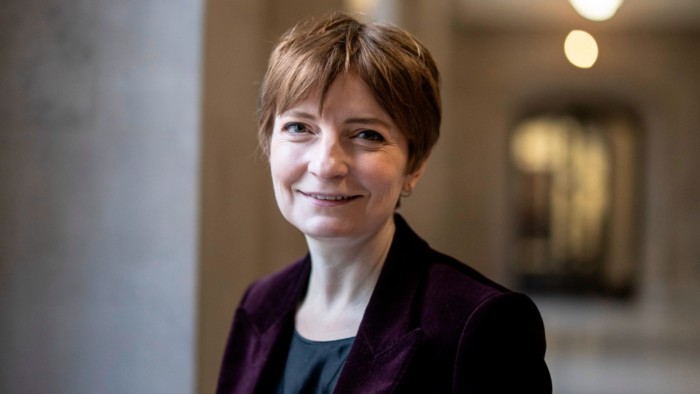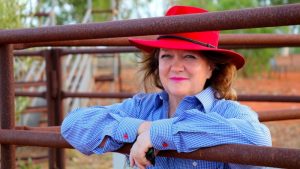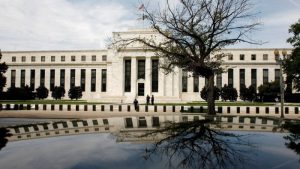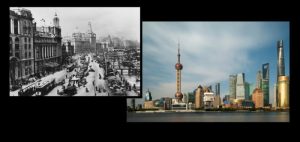US trade tariffs would pose risk to economic growth, top BoE official warns

Unlock the Editor’s Digest for free
Roula Khalaf, Editor of the FT, selects her favourite stories in this weekly newsletter.
Donald Trump’s proposed trade tariffs would pose a risk to economic growth in countries including the UK, a top Bank of England official has warned, as she voiced concerns about persistent domestic inflation.
Clare Lombardelli told the Financial Times that uncertainty about the US president-elect’s trade policies could weigh on growth in the short term and that increased trade frictions would dent productivity in the longer term.
“I don’t want to speculate on the specifics but we know barriers to trade are not a good thing, whether they are tariffs or regulatory or others,” Lombardelli said in an interview.
“Whether you are an economic historian, an economic theorist or a data-driven economist, the impact is clear in terms of its direction. In terms of its size, that depends on the circumstances.”
The comments by the BoE deputy governor for monetary policy came after Trump vowed to impose tariffs of 25 per cent on all imports from Mexico and Canada and an extra 10 per cent levy on Chinese goods. His threats hit global markets and sent shockwaves through US trading partners.
Lombardelli said it was too early to quantify the effects of Trump’s proposed tariffs but that BoE interest rate-setters would discuss trade developments in upcoming meetings.
The economic impact would depend both on the details of the policies and the reaction of America’s partners, she said, adding that what the measures would mean for inflation was “less clear”.
One possible consequence of higher US tariffs on Chinese imports would be disinflation elsewhere as Chinese producers discounted products they exported, Lombardelli acknowledged, while stressing it was too soon to know because the impact “entirely depends on how other countries respond”.
On interest rates, Lombardelli said domestically driven inflation remained a bigger concern.
She said she was less concerned about inflation persistence than when she joined the BoE in July but cautioned that pay growth and services inflation, a key gauge of underlying domestic price pressures, were still firmly in the spotlight.
“I do worry [that] we still have services inflation in this country consistently at levels well above their pre-Covid average, well above rates that are consistent with the [2 per cent] inflation target,” she said.
“When you are seeing services inflation — that is a big part of the economy — at those sorts of levels, that does suggest we have further to go.”
Services price growth was 5 per cent in October, above economists’ predictions of 4.9 per cent but in line with the BoE’s forecast. In a speech this week Lombardelli cited surveys pointing to pay growth of 4 per cent — above the 3 per cent pace that would be compatible with the central bank’s inflation target.
“The labour market is still tight,” she said. “We go around the country . . . talking to businesses about how hard they are finding it to recruit people with the skills they need . . . It is not as big a problem as it was two years ago but it is a problem.”
Lombardelli declined to say how she would vote in future Monetary Policy Committee meetings but her comments do not suggest she is ready to back a reduction in interest rates again as soon as December.
She voted with the MPC majority in favour of the two cuts so far this year, which have left the BoE’s benchmark rate at 4.75 per cent, as policymakers vow to follow a “gradual” approach to easing.
“It depends on what we see in the data. For me, gradual means we will need to see more evidence on this disinflation process continuing before we can continue to ease policy,” Lombardelli said.
A former OECD chief economist and Treasury official, Lombardelli is leading reforms of BoE forecasting and communications after a highly critical review by Ben Bernanke, former US Federal Reserve chair.
The new regime will involve setting out alternative economic “scenarios” and upgrading how the BoE does its modelling and produces its outlooks. Lombardelli this week stressed the project would take years to bear fruit.
In the interview, she said it was too soon to say if rising trade tensions would be formalised into an alternative scenario for the MPC’s upcoming meetings but that discussions would in any case cover risks over trade.
“We will definitely consider whether it’s in a scenario or not,” she said. “They [trade barriers] certainly are negative for growth in the short, medium and long term. They are negative for productivity. The effects on inflation [are] less clear.”
One result of the reforms would be to make it quicker and easier to lay out alternative scenarios, better informing the MPC’s debate, Lombardelli added.
“[Alternative scenarios] are a much better way of communicating uncertainty about what is actually going on in the outlook, but also a better way of communicating your reaction function,” she said.
This could entail an alternative interest-rate path that emerges from a specific scenario, Lombardelli said, adding this could be generated via some kind of rule or “optimal policy approach.” But she played down the idea of publishing a path representing policymakers’ central interest rate expectations, saying it could indicate a level of certainty among rate-setters “that just isn’t there”.
#trade #tariffs #pose #risk #economic #growth #top #BoE #official #warns





